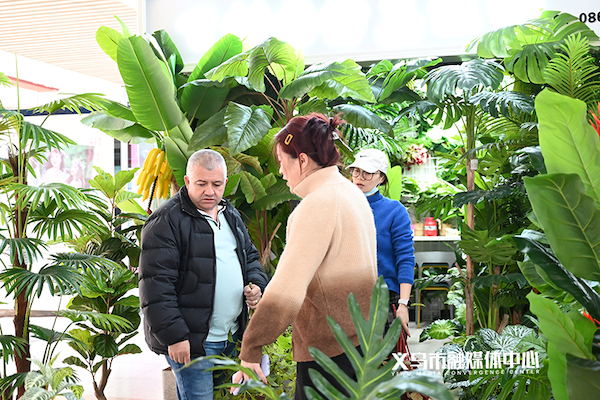Cross-border e-commerce grows amid pandemic
Over the first 11 months of this year, the e-commerce transaction volume of Yiwu, a county-level city in East China's Zhejiang province, rose 21.5 percent year-on-year to 342.886 billion yuan ($53.83 billion).
Cross-border e-commerce transactions stood at 92.853 billion yuan, up 17.41 percent from the previous year.
Yiwu International Landport E-Commerce City, a whole-industrial-chain e-commerce service complex, is home to over 200 e-commerce enterprises, of which 35 generate more than 50 million yuan in sales, including Yiwu Kangchen Eyeglasses Co.
In a recent interview with a local media outlet, Sun Yi, general manager of Yiwu Kangchen Eyeglasses Co, spoke about how the company managed to continue growing despite the COVID-19 pandemic.
Sun predicted that the company will generate $10 million in annual sales in 2021, achieving satisfactory growth in revenue, but he also admitted that the company's profits are significantly compromised by things such as the fluctuation of exchange rates and the soaring costs of raw materials, shipping, and labor.
According to Sun, the price of cross-border express delivery has surged from roughly 36 yuan per kilogram to roughly 70 yuan per kilogram this year. The price to transport a container from China to the United States has skyrocketed from $1,000 to $7,000 or $8,000. It has also been difficult for the company to book a container or warehouse and ensure that deliveries are made on time.
To address the issue, the company started using the Yiwu-Xinjiang-Europe freight train service last year.
To ensure an edge over the competition, the company has continued to invest heavily in the designs of new styles of eyeglasses.
Sun announced that the company will raise prices on all its products by 10 percent to 15 percent on January 1, 2022 and has already informed all its clients worldwide. To his relief, all clients have expressed understanding and support for the company’s price rise given the difficulty of controlling costs amid the pandemic.

 Yiwu and Qingtian: Global supermarket alliance spurs economic growth
Yiwu and Qingtian: Global supermarket alliance spurs economic growth Artificial flowers: Yiwu's evergreen business
Artificial flowers: Yiwu's evergreen business Yiwu Intl Trade Market reopens after Spring Festival holiday
Yiwu Intl Trade Market reopens after Spring Festival holiday